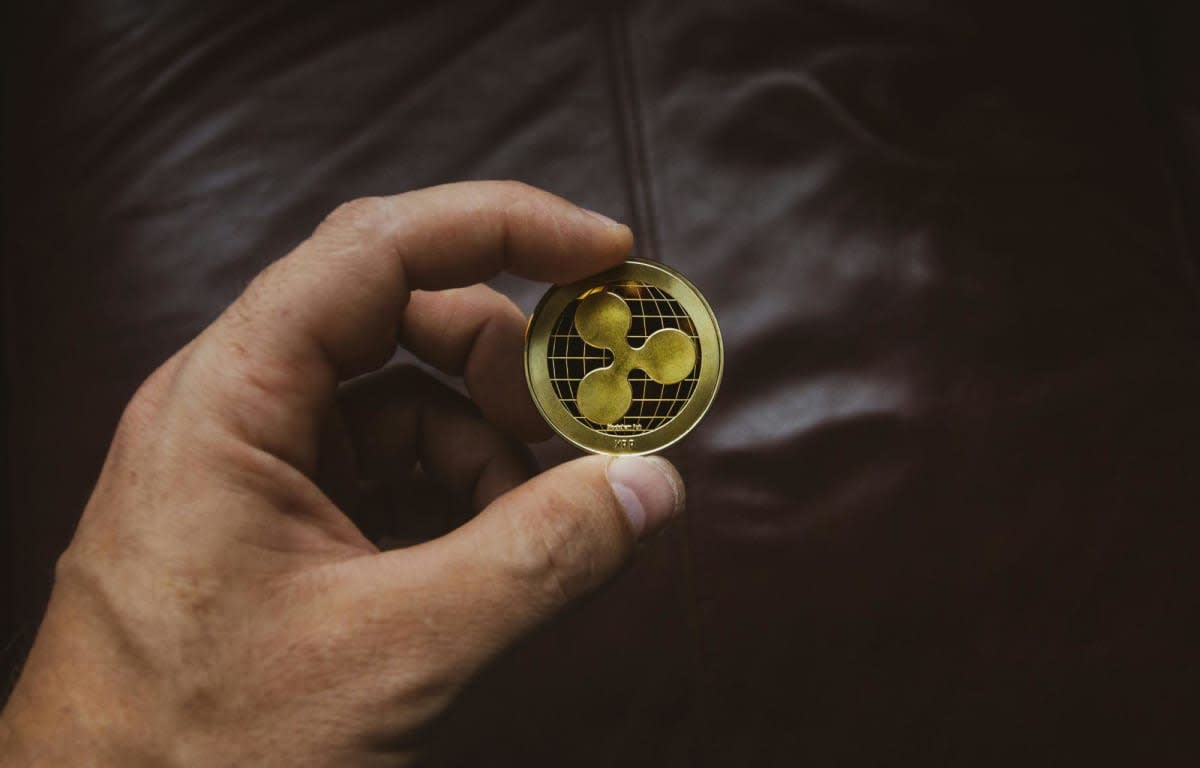Invest
Post-mortems of crypto-hacks reveal other diseases
When an autopsy is performed on a crypto-theft, it often shows other diseases like corner-cutting, operator naivety or even embezzlement, a third-party liability expert has said.
Post-mortems of crypto-hacks reveal other diseases
When an autopsy is performed on a crypto-theft, it often shows other diseases like corner-cutting, operator naivety or even embezzlement, a third-party liability expert has said.

CoinCheck last week suffered the world’s largest crypto-theft. When it was revealed that the operators had been holding clients’ funds in a “hot wallet”, connected to the internet, as opposed to a remote “cold wallet”, it raised questions about how well crypto-operators are meeting regulator obligations.
According to commercial equity and disruptive technologies and the law lecturer at the University of Technology Sydney, Dr Philippa Ryan, corner-cutting in the crypto world is a “very, very big problem”.
“When they [CoinCheck] admitted that they were understaffed, and when they admitted that they had the funds that were hacked in a hot wallet, they were admitting to breaches of the rules that were set up by the regulator.
“They have been trying to get registered, and it's still pending registration. I think they were trying to do it properly and I think they've been naïve.”

Questioned on whether CoinCheck’s admission that funds were stored in a hot wallet signified a culture of corner-cutting, Dr Ryan said the “failure to meet any of the regulator’s minimum expectations” is part of the problem.
Continuing, she said: “The problem for any ICO [initial coin offering], or any exchange that has a hack or a collapse [is] they are going to be then put under the microscope.
“It's like a post-mortem is conducted on a dead body and they start to find other diseases, and this is the problem for anybody who's decided to make themselves known… [if they’re in the jurisdiction] they can be personally liable for the losses suffered by their customers.”
The problem for operators is that often the diseases regulators find aren’t related to the hack, she added.
What if it’s not even a hack?
Perhaps more sinister than poor storage, is the possibility of operators disguising embezzlement as a hack.
Pointing to the second-largest historical hack, the Mt. Gox 2014 hack, Dr Ryan noted that in the time since February 2014, Mt. Gox’s operator, Mark Karpeles has “basically gone into hiding”.
“He's now charged with embezzlement and other offences under both Japanese and American law in relation to his role.”
In the months following, Mr Karpeles claimed that he had forgotten about a wallet which held 200,000 bitcoins and said some funds would be refunded.
“I can sort of understand forgetting you had a wallet but 200,000? I'm not convinced at all,” Dr Ryan said.
While Mr Karpeles is now facing legal action, in many cases it can be difficult for regulators and authorities to track the funds or find the hacker. “Even if you can check out the address, and see where the money went before it then disappeared, I think it's very hard to work out who the malicious or nefarious actor is.”
Okay, can we make blockchain liable?
It’s a “really cool question”, Dr Ryan thinks. Noting that the European Union is currently looking into personhood laws for robots and autonomous vehicles, Dr Ryan said there are many other researchers considering how those policies would work for blockchain.
“The idea would be, register that blockchain network and make sure that it also is an entity in its own right, and then it either has provisioning for losses or it has insurance in place.
“I think that's the level of sophistication that's going to exist in due course.”

Cryptocurrency
Binance enhances user experience by introducing new fiat payment channels for Australians
In a significant move to streamline cryptocurrency transactions for Australian users, Binance Australia has announced the launch of direct fiat deposits and withdrawals via PayID and bank transfersRead more

Cryptocurrency
Institutional adoption and clearer regulation drive deeper integration of digital assets into mainstream finance in 2026
In a recent outlook, Binance Australia has highlighted the steady maturation of the digital asset industry, forecasting deeper integration into mainstream financial markets by 2026. The company ...Read more

Cryptocurrency
Australian investors embrace crypto as a core growth strategy
In a significant shift within the investment landscape, cryptocurrency has emerged as a key component of portfolio diversification and long-term wealth creation for Australian investorsRead more

Cryptocurrency
Ethereum and Niche Tokens Give Australia a Unique Edge: Kraken’s 2025 Wallet Analysis
Kraken, a prominent and secure global cryptocurrency platform, has unveiled a comprehensive analysis of millions of wallets from its Australian clientele, showcasing unique trends in crypto asset ...Read more

Cryptocurrency
Gemini strengthens Australian presence with new leadership and AUSTRAC registration
In a significant move to bolster its presence in the Asia-Pacific region, global cryptocurrency platform Gemini has announced a strategic expansion in Australia. This development includes the ...Read more

Cryptocurrency
Asset managers eye $235bn tokenisation opportunity as TradFi and DeFi converge
In a striking revelation, a global survey conducted by Calastone has unveiled a $235 billion opportunity for tokenised funds, highlighting a significant convergence between traditional finance ...Read more

Cryptocurrency
Big four bank pilots crypto‑backed mortgages: what it means for lenders, borrowers and the market
An Australian big four bank is trialling home loans secured by units in a regulated Bitcoin ETF — a cautious bridge between digital assets and traditional credit. If executed well, the model could ...Read more

Cryptocurrency
Webull launches cryptocurrency trading for Australian investors
Webull Securities Australia Pty Ltd, a subsidiary of Webull Corporation, has unveiled its cryptocurrency trading platform for Australian users, marking a significant expansion in the company’s ...Read more

Cryptocurrency
Binance enhances user experience by introducing new fiat payment channels for Australians
In a significant move to streamline cryptocurrency transactions for Australian users, Binance Australia has announced the launch of direct fiat deposits and withdrawals via PayID and bank transfersRead more

Cryptocurrency
Institutional adoption and clearer regulation drive deeper integration of digital assets into mainstream finance in 2026
In a recent outlook, Binance Australia has highlighted the steady maturation of the digital asset industry, forecasting deeper integration into mainstream financial markets by 2026. The company ...Read more

Cryptocurrency
Australian investors embrace crypto as a core growth strategy
In a significant shift within the investment landscape, cryptocurrency has emerged as a key component of portfolio diversification and long-term wealth creation for Australian investorsRead more

Cryptocurrency
Ethereum and Niche Tokens Give Australia a Unique Edge: Kraken’s 2025 Wallet Analysis
Kraken, a prominent and secure global cryptocurrency platform, has unveiled a comprehensive analysis of millions of wallets from its Australian clientele, showcasing unique trends in crypto asset ...Read more

Cryptocurrency
Gemini strengthens Australian presence with new leadership and AUSTRAC registration
In a significant move to bolster its presence in the Asia-Pacific region, global cryptocurrency platform Gemini has announced a strategic expansion in Australia. This development includes the ...Read more

Cryptocurrency
Asset managers eye $235bn tokenisation opportunity as TradFi and DeFi converge
In a striking revelation, a global survey conducted by Calastone has unveiled a $235 billion opportunity for tokenised funds, highlighting a significant convergence between traditional finance ...Read more

Cryptocurrency
Big four bank pilots crypto‑backed mortgages: what it means for lenders, borrowers and the market
An Australian big four bank is trialling home loans secured by units in a regulated Bitcoin ETF — a cautious bridge between digital assets and traditional credit. If executed well, the model could ...Read more

Cryptocurrency
Webull launches cryptocurrency trading for Australian investors
Webull Securities Australia Pty Ltd, a subsidiary of Webull Corporation, has unveiled its cryptocurrency trading platform for Australian users, marking a significant expansion in the company’s ...Read more








